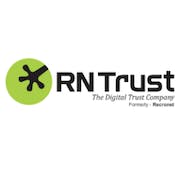Looking for the best endpoint protection software? Our comprehensive buyer's guide analyzes top solutions to help you make the right choice. Protect your business today!
Protecting your business from cyber-attacks is paramount in the digital age. Endpoint protection software is a critical component in safeguarding your systems from security threats. However, with so many vendors and solutions claiming to have the best product on the market, it can be challenging to navigate all the options.
This buyer's guide aims to help you identify the right solution for your business by highlighting key features, factors to consider when making a purchase decision, and advice on how to evaluate each vendor. Whether you are a small business owner or the CEO of a large corporation, this guide will provide you with the knowledge you need to make an informed decision and protect your company's sensitive data from malicious attacks.
What is endpoint protection software?
Endpoint protection software (EPS) is a type of security software that serves to protect endpoint devices and networks from various cyber threats. EPS is designed to provide comprehensive protection to all end-user devices, including laptops, desktops, mobile devices, and servers, delivering protection and visibility against malware, viruses, spyware, phishing, and other cyber-attacks.
The common features of each endpoint protection solution are threat detection, vulnerability assessment, real-time protection, automatic updates, and device management, and the common use cases include:
- Preventing malware and other malicious software from infecting endpoints.
- Network detection and response: It detects and prevents intrusion into the network and block attacks in real-time.
- Device security: EPS secures endpoints, including laptops and mobile devices, to prevent unauthorized access or security breaches.
- File integrity monitoring: It identifies modifications to critical system files and logs and alerts administrators to potential security threats.
Commonly used in wide range of industries, including banking and financial services, healthcare and life sciences, retail, manufacturing, government agencies, IT and technology, endpoint protection software is an essential tool that ensures the organization's security posture is robust, protecting the data from external and internal threats. The software is designed to safeguard endpoints and networks from advanced threats while ensuring business continuity.
Key benefits of endpoint protection software
As businesses grow more reliant on technology, cybersecurity has become a top concern. Below are some of the main benefits of investing in endpoint protection software.
Protection against cyber attacks
EPS is designed to prevent and detect cyber-attacks on your business's devices, such as computers, laptops, and mobile devices. This includes malware, viruses, and ransomware.
Increased productivity
With the software, your employees can work without fear of cyber-attacks interrupting their work or compromising their devices. This leads to increased productivity and efficiency.
Compliance with regulations
Many industries have regulations in place that require businesses to protect their data. Endpoint protection software can help ensure your business is compliant with these regulations.
Cost-effective
Investing in an EPS tool is a cost-effective way to protect your business from cyber-attacks. The cost of data breaches and other cyber-attacks can be substantial, so implementing this software is a worthwhile investment.
Centralized management
Most solutions include a centralized management system, making it easy to manage security across your entire organization.
Peace of mind
Knowing that your business is protected from suspicious activities can give you peace of mind, allowing you to focus on growing and developing your business without worrying about potential attacks.
Overall, endpoint protection software is a critical support for businesses of all sizes. It provides protection against cyber-attacks, increases productivity, ensures compliance, is cost-effective, includes centralized management, and provides peace of mind. So, if you haven't already invested in endpoint protection software, now is the time to do so.
10 key features of endpoint protection software
In this section, we'll explore the top 10 features of EPS that are essential for businesses.
- Real-time threat protection: The software provides real-time protection against viruses, malware, and other security threats, ensuring your device is always safe.
- Firewall protection: By acting as a barrier between your device and the internet, it helps block unauthorized access and prevent hackers from gaining access to your network.
- Device control: With complete control over devices accessing your network, EPS can prevent unauthorized devices from connecting to your network and keep your data safe.
- Data encryption: It can encrypt data at rest and in transit, protecting confidential information from falling into the wrong hands.
- Network access control: It allows network administrators to control access to their network and enforce policies to ensure compliance.
- Centralized visibility and management: With an endpoint protection solution, administrators have a bird's eye view of all the devices and endpoints in their network, allowing them to monitor and manage potential threats effectively.
- Automated updates: It typically updates automatically, ensuring that your device has the latest patches and security updates installed.
- Email security: It can scan incoming and outgoing emails for malicious content, reducing the risk of phishing attacks and other email-borne threats.
- Web filtering: It blocks access to malicious or inappropriate websites, reducing the risk of web-based security threats.
- Reporting and analytics: It provides a wide range of reports and analytics to help administrators understand the security posture of their network, identify potential vulnerabilities, and take necessary actions to address them.
With features like real-time threat protection, network access control, and centralized management, an endpoint protection tool offers a comprehensive solution to safeguard your business from various security threats.
Considerations of endpoint protection platform
If you're a business, then there's no denying the importance of EPS. This solution is essential for protecting your organization's devices from cyber-attacks, malware, and other suspicious activities. But with so many options available in the market, it can be overwhelming to choose the right one for your business. We've highlighted several factors that businesses should consider when purchasing endpoint protection software.
- Software's ability to detect and prevent threats is the most important factor to consider. Look for a tool that continuous monitoring, threat identification, and response capabilities. Ensure that it can detect and prevent a range of threats, including viruses, ransomware, and malicious activities. Furthermore, the EPP must be able to detect and block even the most sophisticated attacks.
- Your IT team must be able to manage the software easily. Consider a solution with a user-friendly interface that is easy to navigate. Additionally, ensure that the tool provides centralized management and reporting capabilities. It should be easy to deploy across your organization's devices, and maintenance should be simple.
- Invest in a solution that is compatible with your organization's devices and IT infrastructure. Ensure that the software supports all operating systems you use, including Windows, Mac, and Linux. What's more, it should integrate with other security solutions you may already have in place.
- Ensure that the software you choose can scale with your organization's growth. Some tools may work well for smaller organizations but may falter when you expand your workforce. Choose a solution that can accommodate your current needs as well as your organization's future needs.
- Customer support is essential when it comes to endpoint protection software. Ensure that the package comes with a dedicated support team that is available 24/7. You should also consider a platform with robust online resources, such as forums, FAQs, and guidance documents.
- Does the solution offer a consolidated architecture? A survey conducted by CISO revealed that 99% of security professionals agreed that using solutions from multiple security vendors introduces unnecessary challenges, and 69% of them agreed that prioritizing vendor consolidation would lead to better security.
- Finally, you must consider the cost of the software. Endpoint protection platforms can be expensive, but it's worth investing in the best solution for your organization. Ensure that you compare prices from various vendors and calculate the total cost of ownership, including licensing, maintenance, and tech support.
Endpoint protection for business is a crucial investment. When choosing the right software, consider the software's threat detection capabilities, ease of management, compatibility, scalability, customer support, and price. By keeping these factors in mind, you can choose the right endpoint protection software that fits your organization's unique needs.
Software trends for EPS to look out for in 2024 and beyond
Endpoint security software has come a long way since its inception, and staying ahead of evolving threats is vital in 2024 and beyond. Here are the biggest trends to expect in the future of EPS:
- AI and machine learning: The use of artificial intelligence and machine learning is becoming more prevalent in endpoint protection software, providing proactive threat hunting capabilities. This trend is expected to continue as businesses seek to automate and streamline their security operations.
- Zero trust: The zero trust security model assumes that actors exist both inside and outside the network, and thus all users, devices, and applications should be treated as potentially compromised. Endpoint protection providers are responding to this model by developing comprehensive security solutions that incorporate access control, threat detection, and data protection capabilities.
- Cloud-based endpoint security: As businesses continue to embrace the cloud, endpoint security vendors are developing solutions that can scale and adapt to cloud-based environments. Cloud-based endpoint security offers simplified management, reduced hardware costs, and increased visibility into endpoint activity, making it an attractive option for modern businesses.
- Insider threat detection: Insider threats are becoming more prevalent, making it necessary for endpoint protection software to detect and respond to them. In response, endpoint security providers are incorporating user behavior analytics (UBA) into their solutions to detect anomalies and prevent data exfiltration.
Conclusion
Endpoint protection software is critical to protect businesses against cyber threats. As businesses continue to adopt new technologies, traditional antivirus solutions may no longer be efficient. It is predicted that by the end of 2024, more than 50% of enterprises will have replaced older antivirus products with combined EPP and EDR solutions that supplement prevention with detect and response capabilities.
By leveraging AI, incorporating zero trust security models, embracing cloud-based solutions, and focusing on insider threat detection, endpoint protection tools can help businesses stay ahead of evolving threats and protect their digital assets.









